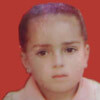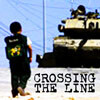
"We could not even bury our daughter"
19 June 2008
On 11 June, eight-year-old Hadeel al-Sumairi was killed when her home in southeastern Gaza was shelled by Israeli Occupation Forces (IOF). Less than a week earlier, eight-year-old Aya Hamdan al-Najjar was killed by a rocket fired from an IOF helicopter. Their violent deaths highlight both the continual dangers facing families who live anywhere near the Israeli border. Read more about "We could not even bury our daughter"








